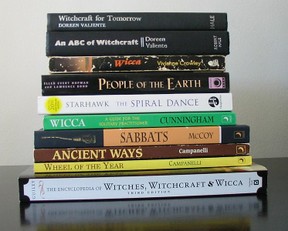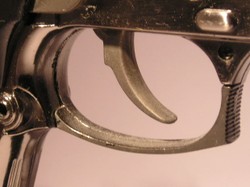The clue is in the job title, right? In order to be a 'creative writer', you have to be creative. But sometimes, creativity can be elusive, and that empty page (or dazzlingly white computer screen), is an intimidating sight.
Everybody who writes, or wants to write, experiences peaks and troughs in their output - sometimes the Muse pelts things at you quicker than you can write them down. However, she's a faithless creature, and may abandon you just when you need her most.
The solution: don't depend on the fickle nature of random inspiration. Instead, change the way your mind works. The parts of the brain (and there are many of them), that are abuzz when imagination is at work can be honed and trained just like any other part of the body.
With a little exercise, your creative muscles will be bulging, and writing ideas may abound! So, here are 10 ways to keep that creativity highway teeming with a constant flow of traffic.


 Take an interest in complete strangers, but not so much of an interest that you get yourself arrested.
Take an interest in complete strangers, but not so much of an interest that you get yourself arrested. Things are happening all the time; to us and the people we know. And those things are a rich source of creative writing material.
Things are happening all the time; to us and the people we know. And those things are a rich source of creative writing material.

 All good writers are also good readers, that is a fact.
All good writers are also good readers, that is a fact. Read anything and everything!
Read anything and everything! In order to keep your writing hand 'in' by writing every day, a journal can be incredibly useful.
In order to keep your writing hand 'in' by writing every day, a journal can be incredibly useful.

 Similar to people watching, people listening can provide a wealth of unexpected ideas.
Similar to people watching, people listening can provide a wealth of unexpected ideas. Brainstorming is really just the act of letting your mind spew out any old thing that happens to be dwelling in it. Don't overthink it, don't second guess it, just let it all flow.
Brainstorming is really just the act of letting your mind spew out any old thing that happens to be dwelling in it. Don't overthink it, don't second guess it, just let it all flow.



 It's easy to make the mistake of thinking you need to be 'in the mood' to write.
It's easy to make the mistake of thinking you need to be 'in the mood' to write. The aim of every single one of the exercises, tricks and tips above is simple: to remove the blocks which prevent the flow of creativity that is inbuilt in each and every one of us.
The aim of every single one of the exercises, tricks and tips above is simple: to remove the blocks which prevent the flow of creativity that is inbuilt in each and every one of us. 







 How to Avoid College Debton 07/31/2014
How to Avoid College Debton 07/31/2014
 Was Charlotte Bronte Jealous of her Sister Anne?on 07/15/2014
Was Charlotte Bronte Jealous of her Sister Anne?on 07/15/2014
 Whose Side is Cancer Research UK on?on 07/06/2014
Whose Side is Cancer Research UK on?on 07/06/2014
 A Plot Summary of Electra by Sophocleson 07/05/2014
A Plot Summary of Electra by Sophocleson 07/05/2014



Comments
Sometimes I see something and it just triggers an idea, which might just use part of what I have observed and an imagination.
I am all for that #10 Motivational Madness factor! Truly some great creative writing tips listed here. Thank you!
Hi, Mira. Thanks so much for your kind remarks; I'm really pleased that you found some of the tips useful. Thanks also for suggestions for future pieces. Actually, I was thinking about writing a Wizz on plot development, so it's good to know that's something you'd want to read.
Your suggestions are so good, Sam! I like that you started with "Become a people watcher." I was thinking about it the other day, too. People are really so very interesting to watch, even if you glimpse them for a moment. (Watching doesn't have to be creepy :-))
Your second suggestion, "Take an event and change it," is also very, very good. Novels should involve your imagination a lot. It's also fun to play with the plot, since people do expect a good plot. Which I'm having trouble with at the moment. Your suggestions would be so helpful (to me and many other people, I imagine). Hope you have time at one point to write some more on plot development and how to keep a plot both creative and well put together.
Hi, Mira. Thanks for the kind comment. When I say writing everyday, it doesn't necessarily mean writing a lot; could just be a paragraph. But, of course, not all of the techniques will work for everybody. And, as you quite rightly point out, taking time away from your desk to do other things is equally important!
These are great ideas. Writing every day doesn't work for me though, unless that's all I do. Mixing projects and energies is killing my writing. However, if I have a stretch of time to devote to my interests (for the most part), I find I'm more inspired than I thought I could be. But it doesn't come out of thin air: I read, I watch people, I watch movies, I take time to think about dreams and emotions, and so on.
Thanks, Kathleen, Dustytoes and Natural_Skin_Care. Glad you enjoyed it.
Yeah, WordChazer, that's very true, one idea will often bounce into another. And, I find, even if it doesn't, taking a break from one thing and letting your brain focus on something else can really help free up some of your creativity, and suddenly the solution to something that's been bugging you can seem obvious. Counterintuitive, but true.
Thanks so much for this, there are some brilliant tips here - and I will use some of them! :)
This was such an interesting page, and I don't long to be a writer. But I know that writing well is important, once you decide to put it out there. Over the years as I've blogged and written articles, I've seen definite improvements in my style. I love your suggestions to becoming a more creative writer.
This is good - all my bad habits laid out for me :) I'm especially bad about censoring myself.